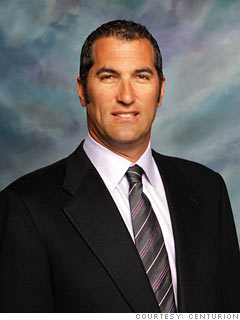Buyers save on surplus goods
Used and overstocked products are becoming hot sellers. These 6 secondhand merchants have seen their sales grow through the recession.

centurionservice.com
Headquarters: Melrose Park, Ill.
Launched: 2001
Sales: $6 million in 2007, $10 million in 2008
Erik Tivin describes himself as the Fred Sanford of surplus medical equipment, surrounded by all the cast-offs he can scrounge. Each month, he buys more than 5,000 pieces of used equipment from hospitals and resells the inventory through live, online auctions to healthcare facilities worldwide.
"Hospitals aren't purchasing lots of capital equipment because credit is tight now, so they're hanging on to what they have," says Tivin, Centurion's president. "But what we've lost in surplus equipment, we've made up in selling manufacturer overstock and equipment from hospital closures."
Tivin sources new inventory by tracking the vulnerable: His company is currently keeping tabs on more than 100 hospitals in financial distress. He also has repeat customers - about 30% of Centurion's clients are hospitals that need cutting-edge technology for teaching or diagnostic purposes that continually offer their used equipment for sale.
Seventy percent of Centurion's buyers are outside the United States, in countries where demand for secondhand medical equipment remains high. The company picks up equipment from hospitals, stores it in warehouses in Melrose Park, Ill.; Las Vegas; and Berlin, Germany, and sells everything on consignment.
"Our margins are the same, but we're gaining market share," Tivin says. "We're spending $4,000 a month for ad-word searches on the Internet and get thousands of hits a day on our Web site. We just signed a contract with Vivantes, one of Germany's largest hospital chains, and anticipate 30% growth in 2009. A liquidator always gets busy in a down economy."
NEXT: User car sales ramp up
| Sponsored by |

